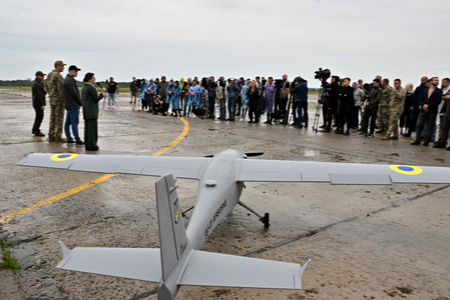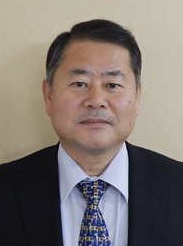Geoeconomic Briefing is a series featuring researchers at the IOG focused on Japan’s challenges in that field. It will also provide analyses of the state of the world and trade risks as well as technological and industrial structures. (Editor-in-chief: Dr. SUZUKI Kazuto, Director, Institute of Geoeconomics (IOG); Professor, The University of Tokyo)
This article was posted to the Japan Times on September 1, 2022:
https://www.japantimes.co.jp/opinion/2022/09/01/commentary/japan-commentary/china-policy-military/
Geoeconomic Briefing

Photo:AFP / Aflo
September 1, 2022
Japan’s policy on China is critically lacking a military perspective
OUE Sadamasa
Consulting Senior Fellow
Group Head, International Security Order, Institute of Geoeconomics
Lieutenant General, Japan Air Self-Defense Force (Ret.)

Japan’s economic security promotion act, which was enacted in May, got rolling recently as Japan and the United States held their first economic “two-plus-two” dialogue involving their foreign and industry ministers on July 29 in Washington.
The joint statement of the U.S.-Japan Economic Policy Consultative Committee, titled “Strengthening Economic Security and the Rules-Based Order,” said the ministers “intend to collaborate in promoting and protecting critical and emerging technologies in a manner consistent with international rules and norms, including through research and development, as well as export controls, so as to support technological competitiveness and resilience and to address the challenges posed by the illicit diversion of technology critical for weapons development.”
Ideally, the two countries will further strengthen cooperation focusing on “technology critical for weapons development.”
And while it is highly likely that the ministers discussed measures to cope with China, the joint statement does not mention the country even once.
Since it was the first economic two-plus-two meeting, they focused mainly on coordinating their economic policies, probably to avoid unnecessarily provoking Beijing.
However, economic security is one of the tools under the comprehensive strategy for dealing with China, and it is important to be aware of how to put it into practice alongside military and intelligence issues.
Japan’s economic security act lacks sufficient military perspectives and the country’s technology protection systems, as well as domestic firms’ awareness, have not kept up with the level of those of the U.S.
Japan needs to boost its economic security mechanism and synchronize its newly launched U.S.-Japan cooperation framework with its China strategy.
‘Economically hot’
Although the concept of economic security is nothing new, it has rapidly become increasingly important along with the changes in international structure.
The liberal international order had been based on the premise that economic interdependence raises the costs of war and works to stabilize national security.
Even for China-Japan relations, a “politically cold, but economically hot” relationship had been possible.
While China banned rare earth exports to Japan in 2010 following a collision between a Chinese fishing boat and Japan Coast Guard vessels — using economic means for diplomatic and security purposes — this was regarded as an exceptional case.
However, as the era of U.S.-China competition began — after the National Security Strategy (NSS) released by then-U.S. President Donald Trump’s administration in December 2017 made clear its confrontational posture vis-a-vis Beijing — economic dependence turned into vulnerability in terms of national security, and it has become necessary to reorganize economic relations taking into account geopolitical factors.
The NSS released by then-U.S. President Barack Obama’s administration in February 2015 stated, “The United States welcomes the rise of a stable, peaceful, and prosperous China.” But the NSS released by the Trump administration said, “China and Russia challenge American power, influence, and interests, attempting to erode American security and prosperity.”
We must once again be aware of what this change in expression means.
Meanwhile, Chinese President Xi Jinping has also indicated the need to weaponize interdependence.
“(We must) tighten the dependence of the international industrial chains on China and form strong counter and deterrent capabilities against foreign parties artificially cutting off supplies (to China),” Xi said at a meeting of the Chinese Communist Party’s Central Financial and Economic Affairs Commission in April 2020.
In the era of U.S.-China competition, both the Japanese government and companies will benefit from the constructing of an economic security strategy under the premise that interdependence is being weaponized.
Military superiority
The essence of U.S.-China rivalry is which side can force its intentions on the other, and the two sides are competing to excel in having the power to do this.
The instruments of national power are DIME — diplomacy, intelligence, military and economy — and technological power is the basis for all of them.
As the war in Ukraine has revealed, economic sanctions don’t bring about short-term, direct effects, and also adversely affect those who impose them.
This means that in the end, the competition comes down to the issue of military superiority.
If a clash occurs between the vital U.S. national interests and China’s core interests — sustaining or changing the status quo in Taiwan for instance — it will lead to a conflict involving one holding the other down with military power.
In order to win this theoretical fight against the U.S. military, China is making a countrywide effort to develop necessary emerging technologies and make them available for military use under the military-civil fusion strategy.
Japan’s first and foremost national security goal is to deter and hamper China’s attempts to change the status quo by force, especially through the use of military force.
And in promoting Japan’s economic security, this point — the recognition that competition over military superiority is at the center of economic security — should never be left out.
To strengthen Japan’s strategic autonomy and strategic indispensability based on this recognition, we need to bear in mind two perspectives.
First, Japan must secure internationally competitive technologies in fields regarded by the U.S. and China as critically important.
Both Washington and Beijing list as critical technologies such areas as artificial intelligence, biotechnology, quantum science, semiconductors, materials and manufacturing technologies.
Japan should individually designate technologies in those areas that need to be prioritized so that it can nurture them and at the same time prevent them from being transferred to China.
Beijing has been skillfully obtaining technologies from abroad using both forceful and nonforceful measures. It is necessary to protect technologies in areas not sufficiently covered by existing security export controls, including conducting international joint research or inviting engineers to universities and other institutions.
Considering that the Russian military has been using Orlan-10 surveillance drones equipped with a Japan-made, commercially available camera and a small engine developed in Japan, the Japanese government should increase the effectiveness of its security export controls not only by making careful improvements to the system but also through strengthening the information security systems at companies and universities and raising their awareness of the need for technology protection.
It is essential to manage the identity of individuals and organizations that have access to such technologies, conduct strict access management and swiftly work on designing a security clearance system.
Secondly, we should note that most of the emerging technologies regarded as key by the U.S. and China are dual-use, sensitive technologies that can be used for both civilian and military purposes.
Taking into account that the main focus of U.S.-China competition is a battle over military superiority, it is extremely important for Japan to evaluate the potential value of each technology, assess how it can be used in military applications and protect, foster and enhance technologies of high value.
In the war in Ukraine, technologies such as Starlink satellites, Google Maps, smartphones and drones are determining the outcomes of battles. It is no exaggeration to say that today’s wars cannot be fought without dual-use technologies.
Meanwhile, Japan has thought little about the military values of dual-use technologies. The country has few people with such expertise and has no organization specializing in making such assessments.
One of the pillars of the economic security law is a system to provide support for the development of cutting-edge key technologies. A yet-to-be-established think tank that will be entrusted with identifying critical technologies needs to have an ability to assess the military utility of emerging technologies.
For instance, hypersonic projectiles have been attracting attention recently as a possible game-changing technology.
In February 1996, Japan successfully carried out a hypersonic flight experiment as part of a space-related development project to create a re-entry vehicle. But this super-advanced technology was not utilized for Japan’s national security.
Because anti-military sentiment spread to all corners of the government, industries and academia in postwar Japan, it is necessary for the government to lead efforts to evaluate the military value of technologies held by companies with little interest in defense issues, and implement various test projects that also involve the Self-Defense Forces.
Breaking down barriers
Japan’s national security system was put together by the second administration of former Prime Minister Shinzo Abe, between 2012 and 2020.
One of its achievements was the launch of an economic team at the Cabinet Secretariat’s National Security Secretariat, which came in April 2020, around the time when the government declared a state of emergency for seven prefectures including Tokyo amid the spread of COVID-19 infections.
The late former prime minister once looked back at that time and said that with the increasing number of infections, governments around the world became less subtle about putting their own country first.
The Prime Minister’s Office had the foresight to create the economic team to cope with such a situation.
The economic team’s leadership and the new economic security act contributed considerably toward pushing forward collaboration between the science and technology policy, industrial policy and national security policy.
However, the collaboration has not yet gone far enough to overcome core issues such as breaking down barriers between the defense industry and companies in other sectors, or utilizing dual-use technologies for military purposes.
A symbolic case is the Science Council of Japan.
The council, one of the government’s organizations whose autonomy is guaranteed, has an influence on the allocations of budgets for science and technology research in Japan.
On July 27, the council said there has been no change in its position of rejecting scientific research for purpose of war.
Chinese researchers
Meanwhile, according to a survey by the education ministry released in October, 43 universities in Japan have forged partnerships with Chinese universities known as the “Seven Sons of National Defense,” which are involved in the development of weapons and equipment used by the Chinese People’s Liberation Army, allowing the exchange of students with the Chinese universities, to allow them to engage in research of dual-use technologies.
The Yomiuri newspaper reported on Feb. 20 that there are quite a few Chinese researchers who engage in studies related to hypersonic technology in Chinese universities and research institutions after returning from Japan.
The Science Council of Japan should create an environment for Japan’s researchers to actively get involved in researching sensitive technologies that contribute to the country’s national security, and the government should protect such researchers and their research achievements.
Joint research and development of sensitive technologies are an important issue for Japan and the U.S. and other partner countries.
The members of AUKUS — the U.S., the United Kingdom and Australia — have identified national security risks relating to international joint research and have already taken measures to mitigate them.
Japan urgently needs to create the same level of risk management as those of the U.S. and other partner countries.
It is necessary to think and respond from military perspectives on how to work on issues left out from the economic security act, including the security clearance system, and how to put the necessary measures into practice as part of a strategy dealing with China.
Disclaimer: The views expressed in this API Geoeconomic Briefing do not necessarily reflect those of the API, the Institute of Geoeconomics (IOG) or any other organizations to which the author belongs.
 APIニュースレター 登録
APIニュースレター 登録